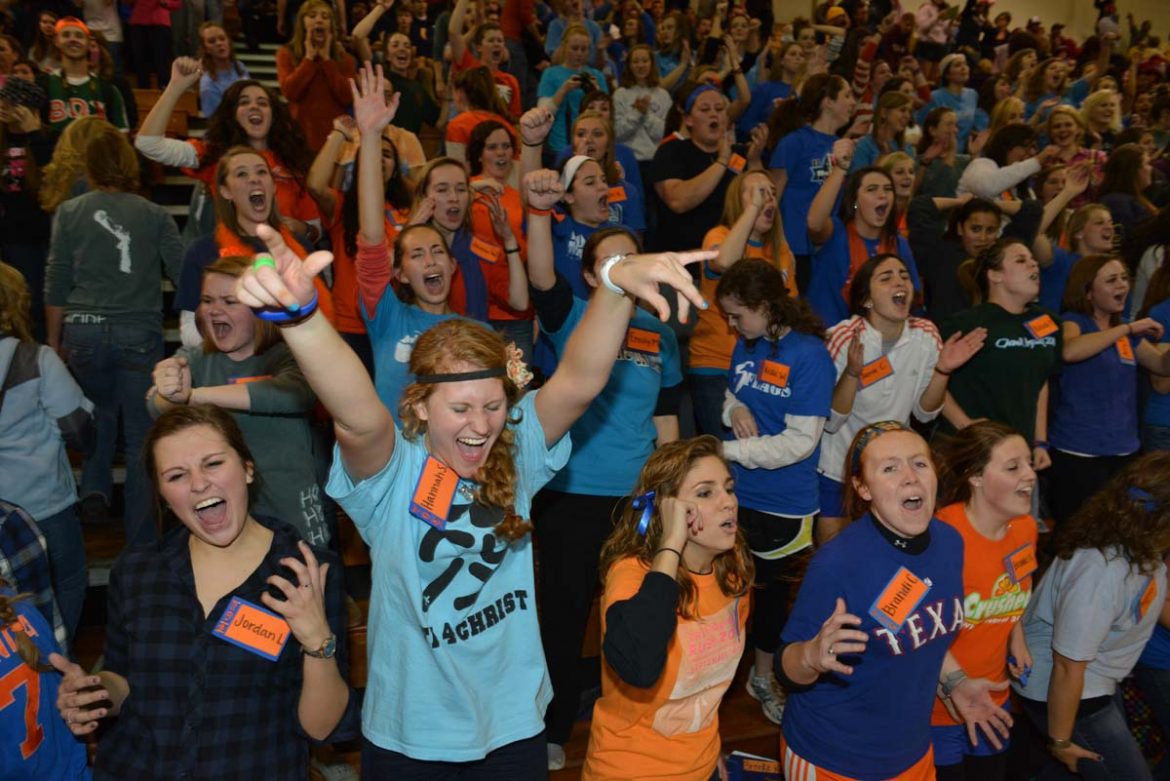Social club induction activities are part of a long-standing tradition at Harding. For decades, social clubs have welcomed new classes of members with a weeklong series of activities meant to bond new inductees. This year was no exception as close to 800 new club members and 1,300 old members participated in club week activities.
For as long as the tradition of “pledging” has existed, so have concerns about hazing and the future of induction activities on college campuses around the country. This year, “Rush” activities at Oklahoma Christian University were limited to a 24-hour period according to president of Chi Lambda Phi, senior Caleb Smith, after incidents in the past few years showed negative impacts on new members.
Vice president and dean of students David Collins said Harding social clubs serve a distinctly Christian purpose and function under the authority of the university and the guidelines stated in the Student Handbook and the Social Club Handbook.
“Club members are responsible for reading, understanding and abiding by these expectations,” Collins said. “This is acknowledged by signing the Anti-Hazing Agreement. If a member or members violate university policies, consequences range from warnings up to disbandment of the club or expulsion from the university for the individual. Students who violate state hazing laws can face legal consequences.”
Over the years, several social clubs have been disbanded for failure to follow the university code of conduct. In 1981 the men’s social club, the Mohicans, was disbanded not long after then freshman Lynn Bartley O’Neal III had a five-inch “M” burned into his skin by silver nitrate during a pledge week initiation. O’Neal sued the university and two Mohican members for $25,000 and medical expenses, according to Bison archives.
Since then, club induction activities have seen many renovations focused around the Arkansas Hazing Law. Harding first began attempts to enforce the Arkansas Hazing Law, according to Bison archives, in 1989 when the administration scheduled a meeting between the club officers and the university’s attorney to discuss the Arkansas Hazing Law. One club president at the time said it was Harding’s way of passing on the responsibility to students.
Assistant dean of students Kara Abston said while the university helps guide the clubs and inform students of the law, responsibility ultimately falls on the student to understand and follow the policies. Harding said the policies must be strictly followed to protect the students and the university as well.
“The hazing law is a little unique,” Abston said. “Because if you witnessed a crime, by law you would not have to get involved or report it. Under the hazing law, if you don’t report it you may face legal consequences. So if you’re witnessing hazing and not doing something about it, then you can be liable as well.”
In 2010 a lawsuit against the University of Arkansas demonstrated that the same rule applies to universities. The suit, filed by University of Arkansas sophomore Nicholas Brown, alleged that university officials, including the director of Greek life and dean of students, were aware of hazing issues within the fraternity Phi Delta Theta, but failed to enforce appropriate sanctions. According to the University of Arkansas’ student newspaper, the suit claimed that the university placed greater value on Phi Delta Theta alumni donations and revenue than enforcing the policies of the university and Arkansas laws.
In fall of 2011, stricter regulations were placed on Harding social clubs to prevent hazing. The old traditions of having inductees wear unusual clothes, stage line-ups, write essays and carry around designated items were outlawed under Harding’s anti-hazing policy.
Many club officers said that while they understand the purpose of Harding’s regulations, the broadness of what ‘could’ be considered hazing under the policy has made it difficult to get activities for club week approved and has limited what clubs can do.
“It’s not that any of things we were doing before were violating the hazing laws,” said vice president of Iota Chi senior Jill Holt. “It’s that the Harding policy put stricter limits on things that could be considered hazing to prevent any possible issue. Like standing in a line, it just helps with organization, getting information passed quicker and reducing confusion, but under the policy we can’t do that.”
In addition to the increased regulation in 2011, the title for the week was changed to one that better communicated the week’s true goal, according to Collins.
“The term ‘Induction Week’ was changed to ‘Club Week’ in an effort to better communicate the intended purpose of the week’s activities — to celebrate new membership and foster relationships among all club members,” Collins said.
